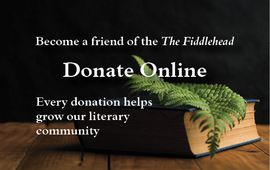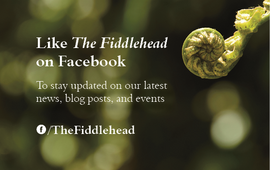My Name is Bridge (an excerpt)
Mother told me my grandmother has lost her mind. She stood in the moonshine for too long and wandered up into the ocean of stars so deep it was hard for her to find her way back. She was swallowed whole by the myths of the past one night, and never could be retrieved. “Kharafet,” my mother said, “she lives in the land of fables now.”
*
Mother told me not to follow my grandmother to the rooftop on the day of the eclipse, but the banging was too loud. I heard the banging coming from above, and I snuck out of the house, curious and filled with fear, I climbed the stairs guided by the endless knocking coming from above, and I found her, standing there with a shawl on her back, lifting the kitchen pot up in the air as far as her arms can reach, and holding a wooden spoon and knocking on it as loud as she possibly could. Neighbours looked out from windows of mounting buildings enraged by the noise coming from our dwarfed house. She stood, her left breast bare and her white hair glimmering under the dimmed sunlight, humming to the imagined tune she plays on the pot.
“What are you doing?” I asked, and she explained that Nanar, the Assyrian Goddess of the Sun, is angry. “She hides the sun to remind her worshippers that she could bring darkness to the world.” Nanar scared me, I pictured her a winged woman riding a horned ox of fire and ice, opening her unhinged jaw and sucking the sun dry of warmth and fire, turning the old star blue. I ran back home to hide in my little room; my heart is bounding and my face is red. I saw the sun disappear slowly behind a dark disk and I wondered if this is the palate of Nanar’s mouth, round and open and toothless and ready to take away our guiding star.
I brought my birthday doll for moral support; I tucked her under my armpit. I ran to the kitchen, I fetched a cooking pot and a wooden spoon and I rushed to the rooftop, ignoring my mother’s call. I banged on my cooking pot right next to my grandmother, and she banged louder. Our arms extending to the skies like praying worshippers, we swirled in circles like the Darweesh I saw in the Ummayad Mosque. We sang a song of war I know not the lyrics to, and we shouted a primitive shout hidden in the back of my head since I was born. Slowly, the dark mouth in the sky retreated, and the warmth was back to the surface of earth. I felt proud of myself; my grandmother messed with my hair smiling.
*
My grandmother liked to sit and watch her black and white TV in her chair. The louder the sounds of explosions she heard from outside, or glimpsed over the large flat screen of our living room, the higher she turned the volume up on her black and white TV. “Mother, would you turn that down?” my mother asked her repeatedly, only to see a cornered smile on my grandmother’s face without a response.
*
“No war will ever end the beauty of Damascus,” my grandmother told me and I believed her. She instructed my mother never to leave the white laundry out when we hear the sound of explosions. “White is the colour of the soul,” she repeated, “Our bed sheets will attract the wandering lost ones from the nearby neighbourhoods. Let them find their way to the court of Ashour.” My grandmother explained to me that Ashour, the God of War, will hear the stories of the dead, and he will be just and swift. He will find his ways. I picture Ashour with shining blinding skin, like the sun, embracing the souls of his warriors, welcoming them to his paradise, turning their faces into burning lava for the torture of their enemies. “Kifer,” my mother whispered to me, “don’t listen to your crazy grandmother’s apostasy.” Mother never told my grandmother how she felt. She was raised to respect her elders. She also found the advice useful; white sheets left outside during the time of explosions ended up covered in tar, ashes and smelled of smoke.
*
My grandmother told me my father, her son, called me Bridge out of spite. She brushed my hair for hours as I sat silently looking at her reflection in the mirror. I remember her face: old and wrinkly and filled with stories she forgot to memorize. She told me that he had hoped for a son to inherit his last name and what’s left of his wealth after the government nationalized his two factories and took away his house in downtown Damascus. I was born on the day they opened that bridge, an extension of a highway they built right through where my father’s childhood house used to rest. He stood outside the delivery room waiting for deliverance to his prayers from Allah. He heard my first scream and couldn’t identify my gender based on it. “All babies sound the same,” my grandmother whispered. He didn’t care to hide his disappointment when he was informed of my arrival, a fifth in a line of daughters. “Tell her mother to call her Bridge,” he told the midwife, who tikked her tongue in disbelief, “a disappointment upon disappointment — Allah has forsaken this family of hope.”
*
My mother, not one to disobey her husband, and herself disappointed she couldn’t fulfill his right of a male heir, accepted the punishment on my behalf, and whispered to him to find himself a second wife who might bring him what he needs. She carried me in a taxi back from the hospital, as he was busy visiting his new future in-laws, and together, with my enlightened grandmother, we crossed the bridge I was named after for the first time.
“I moved in with you the night you were born,” my grandmother said, admiring my long hair. “I never left you since.”
*
My mother told me that I grew up loving that bridge anyway. I awaited trips to visit relatives I didn’t care for so that we could drive back upon that arched bridge. I was mesmerized by the joy of the unknown road ahead of us as the car climbs up to the peak of the bridge, and the slide down in an accelerating speed into what felt like incoming traffic. Even in my sleep, my mother added, I would giggle in the back of the car, resting my head on the lap of one of my sisters, as we glide down the bridge like a roller coaster I only saw on TV. . . .











Comments
I like your story!
Add new comment